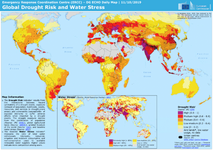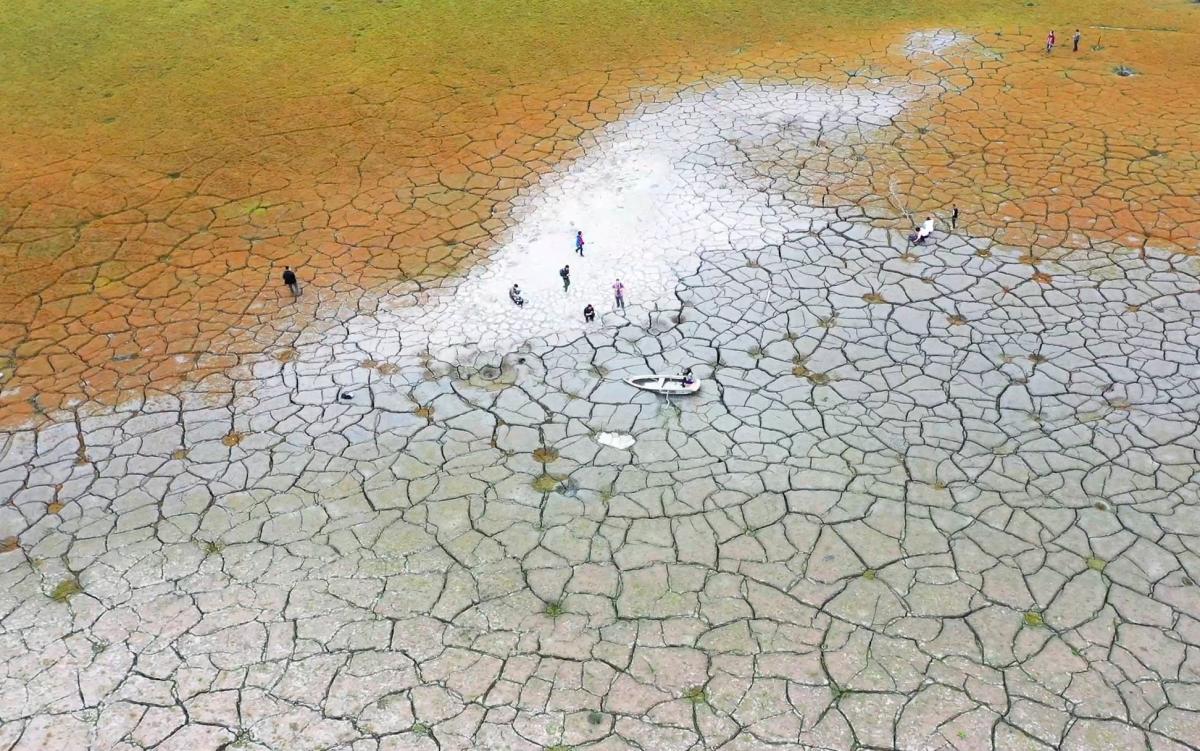Gold Supporter
- Messages
- 24,716
- Reactions
- 37,546
Follow along with the video below to see how to install our site as a web app on your home screen.
Note: This feature may not be available in some browsers.
Drink tap water, zero sodas, yada.I am a skeptic when it comes to the degree of mans contributions to global warming and the peak oil theory but I am concerned about pollution and garbage. For those that share the same concerns what have you done in your life to reduce your output of garbage and pollution?
I watched a documentary last night titled "Live The Change". They followed a few different couples and others who were living on properties in New Zealand. They had organic farms, ranches and such. It sounds great but if we tried to have everybody live like that, property would be unobtainable due to the populations sizes. The adaption you referred to including home density is the only way we can maintain the populations we have. Unfortunately the way our economy works, depending on continued growth, I don't see a way out for us. If we were to all live frugal lives and buy less stuff the economy would suffer. If somebody comes up with a solution that is good for the economy and for the planet, they will probably win a Nobel prize.Peak oil theory - debatable.
Peak carrying capacity. Proven, time and time again; any environment, from your body to the earth, has a peak carrying capacity for the organisms within it. Too much and the environment cannot support the organisms. You see it with wild animals, the land, and predator/prey relationships. This has been an accepted and proven issue for environments for as long as we have been here to observe it.
Unfortunately, humans are extremely adaptable to our environment. Instead of living "within our means" (the environment), we keep adapting and "improving" such that we overrun the ability of our environment to support us, and then we adapt some more. We move into areas where we previously could not survive, and we change the environment such that we can survive there - or we import what we need to survive there from other areas.
Besides that, we are wasteful with energy and other resources.
Worse yet, we pollute our environment so much that the environment cannot recover. The pollution we dump into the ocean, for example, is catching up with us.
What have I done to reduce my personal impact? Not much. I do reuse some things, but being a single person living alone, I don't output much garbage - one grocery sack per week, which I put in the neighbor's trash can (with their permission) because I don't want to pay $30+/month to dispose of 4 sacks of garbage.
I think the potable water issue is very addressable. Every time we're about to run out of something, we find a solution. But I agree that at some point if we don't, things could get very ugly. Oil has always been an issue and we - the US - have never consistently handled that well. We are not nearly as close to a viable alternative as some seem to think.The "way out" is zero population growth and probably population reduction, which is highly unlikely, at least by choice.
We are already beyond carrying capacity, and even if population growth stopped today, we are using up resources and polluting the environment at a rate that we will eventually exhaust the resources (some of which we already are - like potable water).
Eventually we will get to the point were deaths exceed growth, and at or near that point we will have increasing die offs.
I probably won't be alive, but I think it will happen this century, maybe as soon as 30-40 years from now, but probably this century. Millions, probably billions will die off. We are not learning to live within our means.
On an individual basis, some can maybe find a place and learn to live within their means, preferably having a net zero impact on their environment, but as you say, for everybody to do that, we are probably well beyond that point.

This article dicusses how GDP growth and Environmental Protection can and has happened together.

Economic Growth and Environmental Sustainability
With enlightened design, sustainability management and cutting-edge technology we can harness human ingenuity to the practical problems of environmentally sustainable economic development.news.climate.columbia.edu

It could take a while. Counting salt water, we're not using 1% of what's available. And we have an unimaginably huge nuclear reactor just a few million miles away. Right about 1 AU, I've been told.TL;DR but I will assume this; tech is the answer.
Tech can help, but it only delays the inevitable.
The fact is that there is a finite amount of potable water, air and arable land, and with each person added to the population, there is less and less water, air & land per person. Eventually, there won't be enough water, air or land to sustain the population. We are already having problems with potable water, have had for decades - climate change (regardless of cause) only makes that worse. We don't have the energy to distill sea water and without water, arable land not only can't grow food, but the land wastes away.
View attachment 890303
If we can't survive here on earth where there is water, air and land, where we evolved, then I doubt we can survive in the most hostile environment there is - space - for any length of time in any reasonable amount of people necessary to have the biological diversity to survive as a species. Space travel for any foreseeable future, requires the support of a planetary based technologically advanced civilization.It could take a while. Counting salt water, we're not using 1% of what's available. And we have an unimaginably huge nuclear reactor just a few million miles away. Right about 1 AU, I've been told.Who knows, we may be able to hold out until interstellar travel is doable. There are supposed to be the basic makings of food in the Oort cloud only 100,000 AU away, in quantities that would support us for millennia and more. If the glass is truly only half full, it's because nobody, picked up the pitcher yet.
But I'm saying we can. We have so far, and despite the number of words in that article, when it comes down to it they don't know any better than you or I whether we will make it. It was an interesting mental exercise for the writer, nothing more and hopefully nothing less.If we can't survive here on earth where there is water, air and land, where we evolved, then I doubt we can survive in the most hostile environment there is - space - for any length of time in any reasonable amount of people necessary to have the biological diversity to survive as a species. Space travel for any foreseeable future, requires the support of a planetary based technologically advanced civilization.
We could, but we won't. I have yet to see any indication that we truly have the inclination to do what it takes. As I said before, it would require a decline in the population, and that just is not happening. We don't have the time or the inclination.But I'm saying we can.
Well the horse hasn't moved in a while and my arm is tired, so I'll leave you with this: No one has any idea how many people we can support or for how long. There are too many variables and unknowns to make any useful prediction more than a decade or two out.We could, but we won't. I have yet to see any indication that we truly have the inclination to do what it takes. As I said before, it would require a decline in the population, and that just is not happening. We don't have the time or the inclination.
Water issue is huge. We could grow a lot more food if we could efficiently move water around where it is needed. There are always going to be places that have an abundance of water while others don't have enough.TL;DR but I will assume this; tech is the answer.
Tech can help, but it only delays the inevitable.
The fact is that there is a finite amount of potable water, air and arable land, and with each person added to the population, there is less and less water, air & land per person. Eventually, there won't be enough water, air or land to sustain the population. We are already having problems with potable water, have had for decades - climate change (regardless of cause) only makes that worse. We don't have the energy to distill sea water and without water, arable land not only can't grow food, but the land wastes away.
View attachment 890303
We bought a 2014 diesel truck. We also grow our own vegetables (most of them) and berries. We recycle, carry everything out of the grocery store without bags, take a shower once a week, and use a bicycle to generate electricity.I am a skeptic when it comes to the degree of mans contributions to global warming and the peak oil theory but I am concerned about pollution and garbage. For those that share the same concerns what have you done in your life to reduce your output of garbage and pollution?

After China takes over Taiwan after the China Olympics, they'll start up full production at only triple the price.
Trucks of fresh water used to feed Taiwan's semiconductors as crops left to die in punishing drought
The world’s largest microchip maker is buying tanker trucks full of water to keep its plant going as farmers struggle to make ends meet during the worst drought in the history of Taiwan. The Taiwanese government this week said it would tighten water rationing from June 1 in the semiconductor...www.yahoo.com